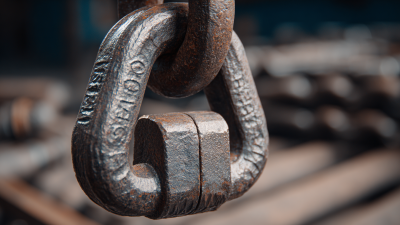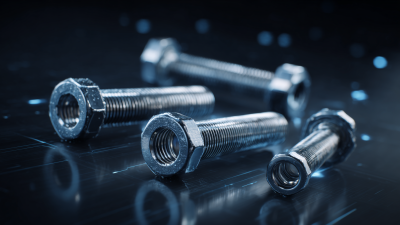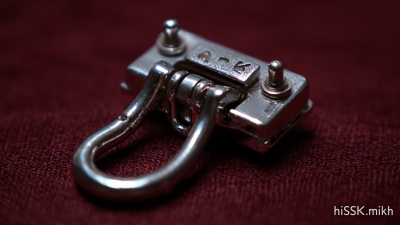When it comes to selecting the right fasteners for your project, the choice between aluminum rivets and steel rivets can significantly impact the performance, durability, and overall quality of the assembly. According to a report by the Fastener Industry Coalition, the global market for fasteners is projected to reach over $100 billion by 2025, illustrating the critical role that materials like aluminum and steel play in various industries.

Aluminum rivets, known for their lightweight and corrosion-resistant properties, are particularly favored in aerospace and automotive applications, accounting for approximately 30% of rivet usage in these sectors. Conversely, steel rivets, with their superior strength and load-bearing capabilities, dominate structural and construction projects. Understanding the strengths and weaknesses of aluminum rivets versus steel rivets is essential for making informed decisions that align with your project's requirements and long-term goals.
When it comes to selecting the right fastener for lightweight applications, aluminum rivets offer several advantages over their steel counterparts. Due to their lower density, aluminum rivets significantly reduce the overall weight of the assembly—an essential factor in industries such as aerospace, where every gram counts. The aerospace fasteners market is seeing an increased trend towards lightweight materials; according to a recent industry analysis, aluminum rivets are becoming a popular choice in high-performance environments due to their corrosion resistance and ease of installation.
Additionally, aluminum rivets can easily join dissimilar materials, such as carbon fiber-reinforced polymers and aluminum alloys, through advanced techniques like friction stir blind riveting (FSBR). This method enhances the joint quality and strength, making it ideal for the modern vehicle manufacturing industry. As highlighted in the analysis, the shift towards multi-material hybrid structures reflects the industry's commitment to emissions reduction and performance improvement.
**Tips for Choosing Fasteners:**
- Consider the specific mechanical properties required for your application. Aluminum rivets are preferred for their lightweight and corrosion-resistant properties.
- Assess the materials you are joining; aluminum rivets excel in connecting dissimilar materials without compromising strength.
- Stay informed about the latest joining technologies, as methods like friction stir riveting can provide innovative solutions for complex assemblies.
When choosing between aluminum and steel rivets for your project, the strength and durability of steel rivets endow them with significant advantages, particularly for heavy-duty applications. According to a report by the International Journal of Advanced Manufacturing Technology, steel rivets exhibit a tensile strength of around 70,000 psi, significantly outpacing aluminum rivets, which generally hover around 40,000 psi. This superior strength makes steel rivets the preferred choice for structures and machinery that endure substantial loads and mechanical stress.
In addition to strength, the durability of steel rivets is a crucial factor to consider. Steel's resistance to deformation and fatigue makes it particularly suitable for projects subjected to vibration and high-impact forces. A 2021 study from the Journal of Materials Science concluded that, in environments exposed to harsh conditions or extreme temperatures, steel rivets retained their structural integrity 20% longer than their aluminum counterparts. Therefore, for projects requiring longevity and robust performance, steel rivets stand out as the go-to fastener, ensuring reliability and safety in demanding applications.

When choosing between aluminum and steel rivets for your project,
cost considerations play a crucial role in determining the best fastener.
Aluminum rivets are generally more affordable, making them an attractive option for projects with budget constraints.
Their lower weight and ease of installation also contribute to reduced labor costs.
Additionally, aluminum's resistance to corrosion enhances durability in certain environments, potentially leading to long-term savings in maintenance and replacement.
On the other hand, while steel rivets may have a higher upfront cost, they offer superior strength
and load-bearing capacity. For projects that require maximum structural integrity, investing in steel rivets can prove more economical in
the long run. Their ability to withstand extreme conditions makes them a reliable choice for heavy-duty applications.
Ultimately, assessing the specific requirements of your project, along with a thorough cost analysis,
will help you determine whether aluminum or steel rivets are the right choice for your needs.

When it comes to choosing fasteners for your project, particularly in areas prone to moisture and corrosive environments, understanding the corrosion resistance of aluminum and steel rivets is crucial. Aluminum rivets are inherently resistant to rust and corrosion due to their natural oxide coating, making them ideal for applications in humid or saline atmospheres. This quality ensures that aluminum rivets maintain their integrity over time, reducing the need for frequent replacements.
On the other hand, steel rivets, while stronger in sheer strength, often require protective coatings to enhance their corrosion resistance. Recent studies have highlighted various methods to improve the corrosion resistance of steel, such as applying multi-layer coatings that exhibit enhanced durability. However, even with advanced treatments, steel can still succumb to corrosion over time, especially in harsh conditions. When selecting the appropriate rivet material, it’s essential to evaluate the specific environmental conditions of your project to determine which option offers superior longevity and performance.
| Property | Aluminum Rivets | Steel Rivets |
|---|---|---|
| Weight | Lightweight | Heavy |
| Corrosion Resistance | Excellent | Moderate |
| Tensile Strength | Lower | Higher |
| Cost | Generally cheaper | Higher |
| Usage | Common in automotive and aerospace | Used in heavy machinery and construction |
When selecting rivets for specific industry needs, both aluminum and steel rivets offer distinct advantages depending on the application. Aluminum rivets are lightweight and resistant to corrosion, making them ideal for aerospace and marine industries where weight reduction and environmental durability are critical. According to a report by the Aluminum Association, aluminum rivets can reduce overall project weight by up to 30%, significantly enhancing fuel efficiency for aircraft.
On the other hand, steel rivets provide superior strength and are preferred in heavy-duty applications, such as construction and automotive manufacturing. A recent study from the Steel Construction Institute indicates that steel rivets can bear loads 1.5 times greater than aluminum counterparts, making them essential for structures that must withstand significant stress.
Tip: Always consider the environmental conditions and load requirements of your project before selecting a rivet type.
It's also important to take into account the compatibility of materials. For instance, using aluminum rivets in conjunction with steel components can lead to galvanic corrosion.
Tip: Conduct a thorough material compatibility assessment to ensure long-term performance and safety of your fasteners.






